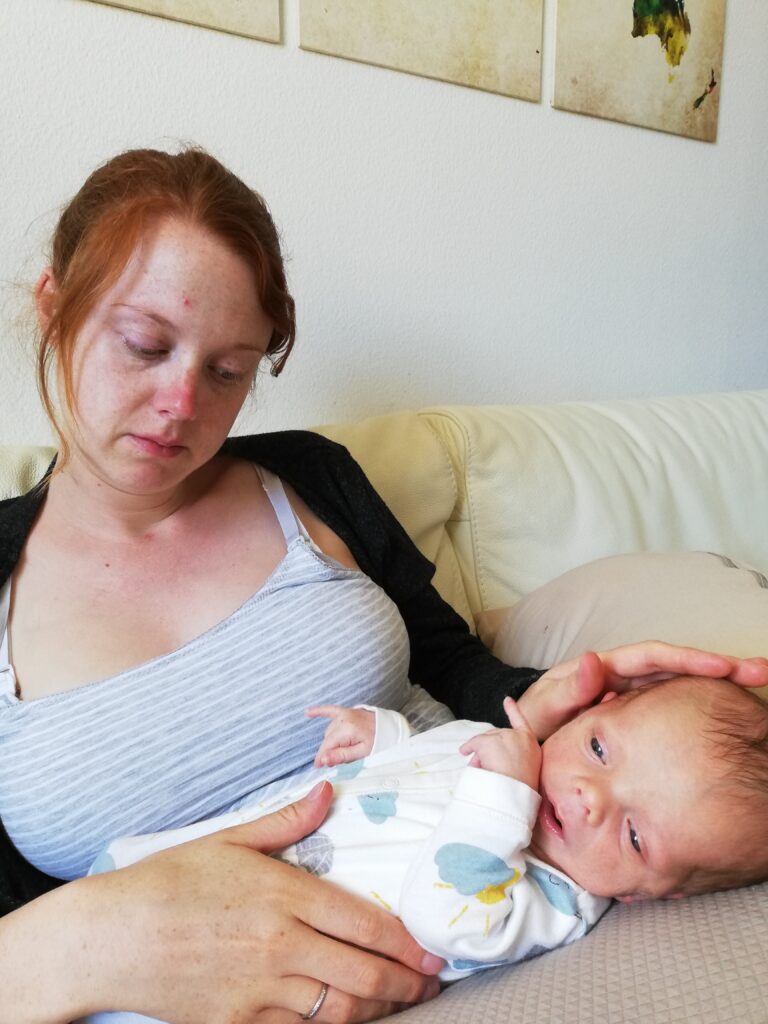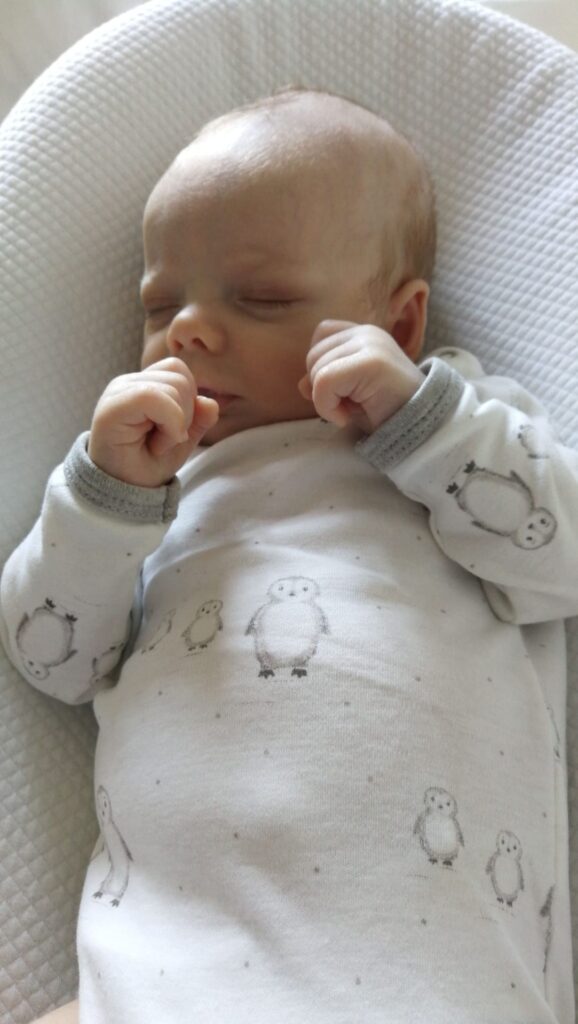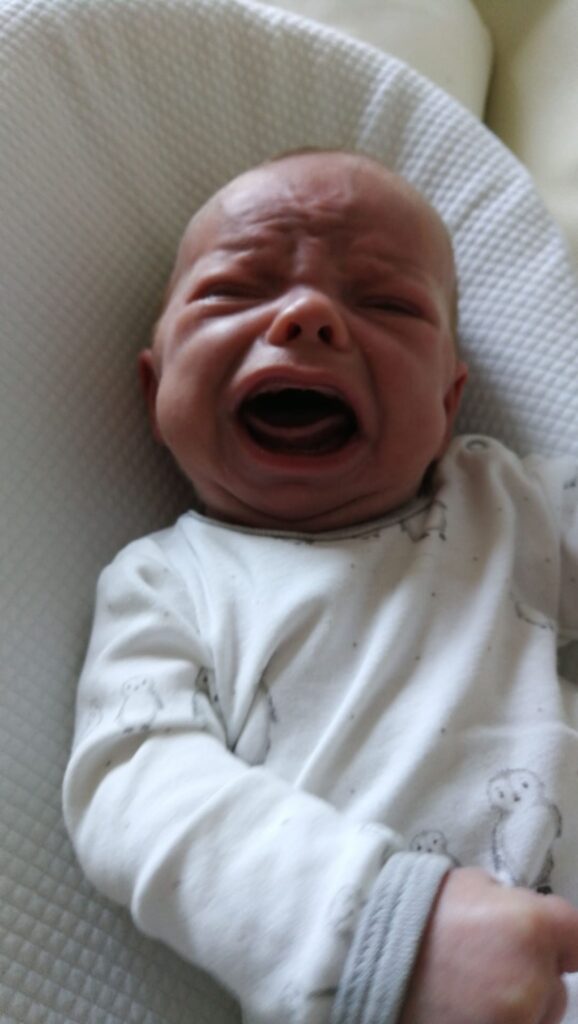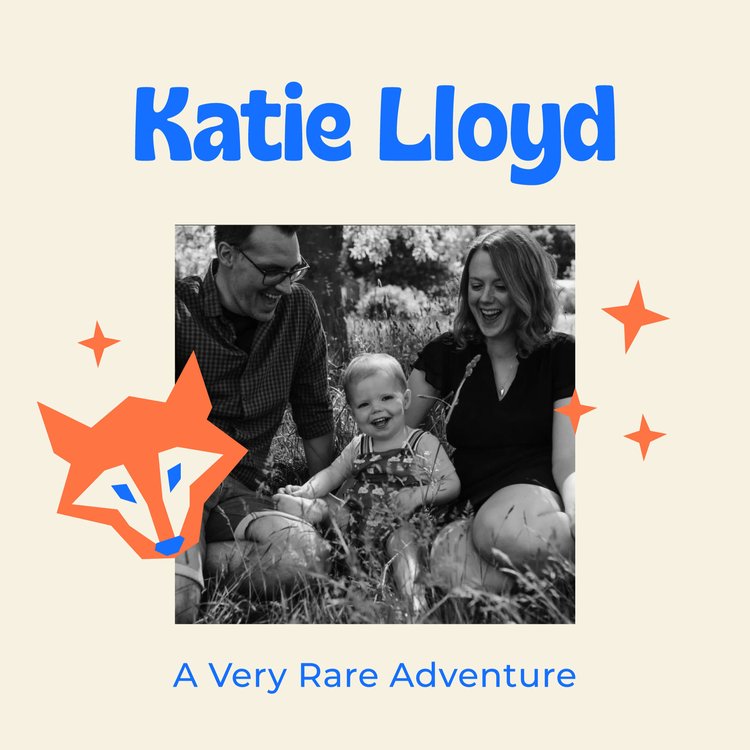
Does anyone? I thought to myself. “No”, I said out loud. How could I explain to the therapist opposite me that I felt like all my mum friends had received a manual on how to raise their child and I seemed to have been overlooked. I saw friends go to wine festivals, restaurants and the park with their babies. I watched them feed them to sleep, pop them down and have a lovely time. I felt like a prisoner, trapped in the four walls of my apartment with a cellmate who hated me. I struggled to shower and eat let alone get out the door.
From the get go it was clear that something was going on with Kasper. He would eat a little, bloat then scream and scream and scream. When he did sleep he would wake up suddenly furious and in pain. By 8 months old a good night consisted of 5 wakeups. He consistently cried most evenings from 4pm to 10pm and my husband and I would pass him back and forth saying “this isn’t normal, this isn’t normal”. Some nights he would cry for hours until the sun came up. He wasn’t a happy baby. I’d tell the paediatrician, “I think he has colic” and he would write it down in his notes with a question mark. I’d tell my mum “I can’t do this” and she’d tell me it was normal. I’d tell the health visitor that I wasn’t coping on one and a half hours of sleep a night and she’d tell me to go to the local hospital and tell them I needed admitting.
That didn’t seem like the only solution. I came to dread the health visitor coming over. “Really? No family nearby? That’s so sad. Not anyone? Wow, you’re the only mother I have who doesn’t have anyone to come and help.” Super helpful. Thanks.
Despite the reassurances from family and professionals, I knew something wasn’t right. I knew the constant screaming, fussing, suddenly stopping breastfeeding, missing milestones, not sleeping more than 45 minutes in a row weren’t right yet no one was listening.
“Boys develop slower than girls”.
“He’s just lazy”.
“He’ll get there in his own time”.
Not once did anyone say: “maybe you’re right. Let’s get this checked out”. I was seen as the problem. I was seen as anxious and depressed – all very accurate but no one was looking at the root cause of my worries. No one thought it unusual that my son was not like other babies. Unable to cope any longer I found myself sitting across from a therapist, specialised in patients suffering from postnatal depression.


“Do you have dark thoughts?” he asked, peering at me through his glasses.
Post-natal depression doesn’t happen overnight. Like poison it crept up through my veins making a beeline for my brain. Once it got there, the dark thoughts sprang up like mushrooms.
“Your family would be better off without you”.
“If you weren’t here, your husband could find a better mother for your son, one who knows what she’s doing”.
“You are a failure as a mother”.
A dangerous cocktail of months of little to no sleep, a baby who screamed for hours day and night and hours alone at home with little support combined with the feeling that something wasn’t right with my son provided the perfect breeding ground for these intrusive thoughts.
I could barely answer the therapist for fear my son would be taken away but I knew it was time to say something, so I nodded.
“Do you think about hurting yourself?” I nodded again.
Depression is so taboo in our society yet one in seven people may experience it in their lifetime. According to the WHO, 10-15% of mothers experience postnatal depression, so why don’t we talk about it more? Why am I shaking already at the thought of posting this for the world to see? Why had I never come across another mother who had experienced postnatal depression? The reality is that there are thousands if not millions of mothers suffering from postnatal depression in silence.
The more I talked about it the more I realised some of my friends had also been suffering from depression, anxiety or loneliness. Motherhood is HARD. Mothering a disabled child is HARD. Mothering a disabled child without a village is HARD. If we don’t talk about it, if we let the shame build up and take over, we will never know that we are not alone. There is no shame in needing help or saying “I can’t cope”. I hope that one person will read this and realise that they are not alone and everything they are feeling has been felt by someone else before.
If you feel like you need help, reach out. Don’t suffer in silence like I did.

To hear more about my battle with postnatal depression and my complex emotions in the run up to getting my son’s diagnosis of DeSanto-Shinawi syndrome, please listen to my interview on the incredible Once Upon a Gene podcast with Effie Parks. Click below to listen.
